After four trips to Pittsburgh since the massacre at Tree of Life, I am emerging from a year of shock and grief with a firm conviction that we must double down on Jewish identity and Jewish pride. This is our greatest weapon against antisemitism and against those who seek to threaten and intimidate us.
Pittsburgh is my hometown. I knew some of the community members who were murdered, and I have been holding on tightly to my memories of them in life. Each pilgrimage I made to Pittsburgh this past year began with emotions centered around personal and collective loss, but each time I emerged with a deeper appreciation of Jewish resilience.
I first went to Pittsburgh immediately after the attack, together with Mark Silberman, our Federation board chair. Together with other community representatives, and with the crime scene tape still surrounding the synagogue, we could visualize the horror and terror that unfolded that Shabbat morning. At that time, we bore witness to the agony and somber solidarity of a community in mourning. The shock was still raw.
As time passed and I traveled back to Pittsburgh, this time in December with my brother Marvin to visit our family, my healing journey began. We celebrated life, even as death and tragedy hovered.
Then, in May, I returned to Pittsburgh with civic and religious leaders on the 23rd annual Atlanta LINK trip to learn about change from other cities. Pittsburgh leaders told us the relationships they had built before the massacre is what allowed them to respond so quickly, and with such an outpouring of love and support.
I took that as a mandate to do the same in Atlanta and I believe we really are making progress building strong relationships both within and beyond our Jewish ecosystem.
As we approached this somber anniversary, Marvin and I went home again, this time with Sasha, my teenage daughter. It was the most intense and gratifying of the visits.
Over some of Pittsburgh’s famous Mineos Pizza, we spent time with Jeff Finkelstein, the CEO of the Pittsburgh Jewish Federation. Jeff was among the local leaders who shepherded that community through an unspeakable tragedy. They are moving forward, with heavy and wounded hearts, but the momentum is unmistakable.
On the Sunday morning before Yom Kippur, Marvin, Sasha and I set out for the cemetery where my parents, grandparents, sister, and other immediate family members are buried. We then decided to visit the tiny Jewish cemetery belonging to Poale Zedeck, one of Pittsburgh’s oldest Jewish cemeteries, located in an old mill town nearby. Another set of grandparents, great-grandparents and other relatives are buried there. No Jews have lived in this area for years. The aged cemetery, so stark behind barbed wire, shows many signs of neglect.
We walked and walked, and searched every inch, but could not find their gravestones. And then we found one — overturned, neglected, bearing the name Mildred Erbstein, my great aunt. The headstones of my grandparents, Ruth and Louis Robbins, were also overturned.
From the cemetery, we hurried over to Heinz Field for a Steelers game. The so-called “Terrible Towel,” a symbol of the Steelers and the city of Pittsburgh, was pink for breast cancer awareness. The Terrible Towel was the invention of Myron Cope, Pittsburgh’s legendary Jewish radio sportscaster. It filled me with pride and nostalgia to be part of “Steeler Nation” and lose myself in the sense of belonging that permeated the arena.
Marvin, Sasha and I all felt it, all the more so since the Tree of Life was never too far from our thoughts. Win or lose — and we lost — it just didn’t matter. And who can forget that iconic newspaper headline, in Hebrew, with the opening verse of the Kaddish. All year I have wrestled with how to reconcile my personal history and Pittsburgh’s renowned hometown spirit with the anguish and stain of violent antisemitism — a stain that now marks my hometown and our global Jewish family.
I know that Jewish Pittsburgh will never be the same. There is a new sense of vigilance, but even at Tree of Life, there are beautiful signs of healing. The plywood covering the windows of the shul have come down. There is now an installation that curates art works sent in solidarity.
When I was growing up in the 1970s—when I was Sasha’s age—the banners outside Tree of Life read: SAVE SOVIET JEWRY. Yes, we saved Soviet Jews. Do we now pivot to asking how can we secure ourselves?
I tried to understand this journey through Sasha’s eyes. In just one day, she traveled to a crumbling old cemetery filled with Jews who share her DNA and also stood before a synagogue where hate inspired a murderer to steal eleven lives, a building now adorned with images sent by students her age demanding gun control. She sat in a stadium filled with tens of thousands of strangers, all waving pink towels, yet felt like she was part of a larger community.
Out of this year of introspection and chesbon nefesh, the only clear answer that has emerged from a senseless tragedy is that we need to pay much more attention to Jewish identity and pride. How else can we counter hate? The work we do to build and strengthen our community is holy, it is relevant, and it is more important than I ever before. We must bind ourselves more tightly to each other, from Pittsburgh to Paris, whether we are secular or religious, and we must continue to build bridges with our brothers and sisters who have experienced similar tragedy at churches, mosques and other community institutions.
As the famous Israeli poem begins, every person has a name. When the anniversary arrives, I will be in Jerusalem and I will say Kaddish for Joyce Fienberg, Richard Gottfried, Rose Mallinger, Jerry Rabinowitz, Cecil Rosenthal, David Rosenthanl, Bernice Simon, Sylvan Simon, Daniel Stein, Melvin Wax, and Irving Younger.
I hope for all of us use the one-year marker to heal, connect and strengthen our bonds to our shared and global Jewish family.
We must continue to fine-tune our community security strategies, improve our vigilance, and continue to tighten our collaboration with local, state and federal authorities, but we cannot – we must not – succumb to fear and retreat into a bunker mentality.
Pride has long been at the center of the Jewish renaissance that marks this era of Jewish history; and pride must remain at the very core of who we are as a community.
Eric Robbins is President and CEO of the Jewish Federation of Atlanta. He grew up in Pittsburgh’s Squirrel Hill neighborhood. These views are his own.d
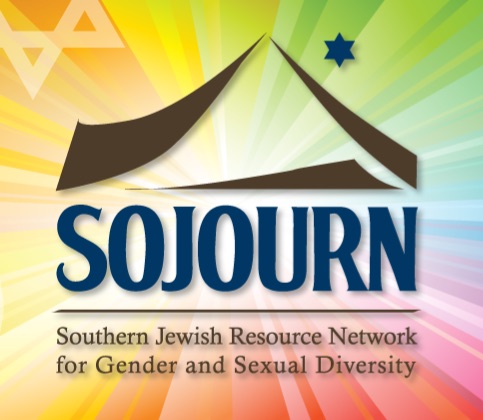
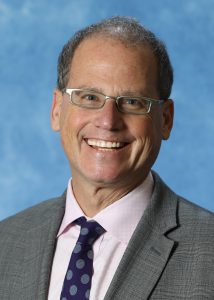
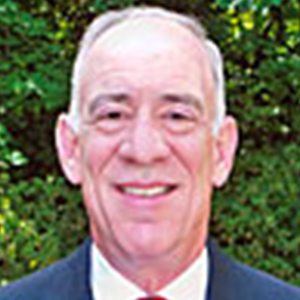
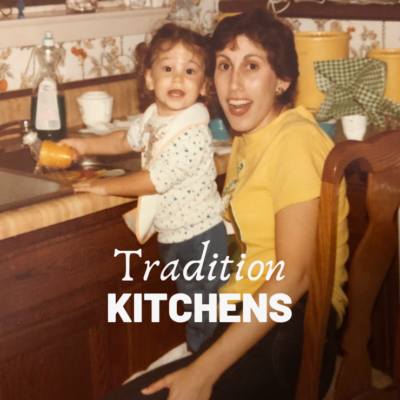
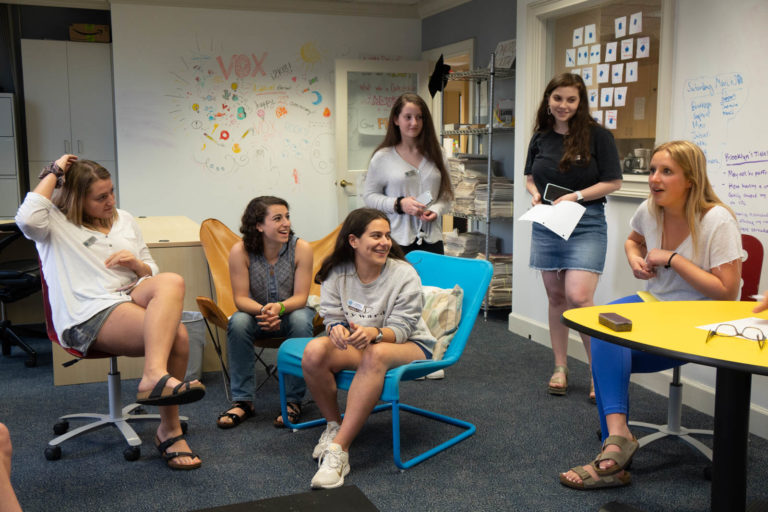
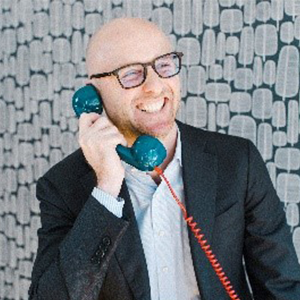

 Most of my “superpowers” come from having been a camper and staff member at sleepaway camp. I’m totally serious.
Most of my “superpowers” come from having been a camper and staff member at sleepaway camp. I’m totally serious.

